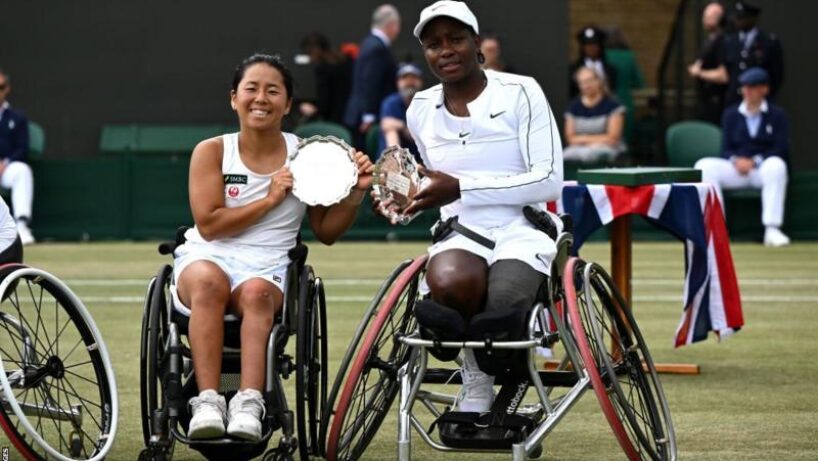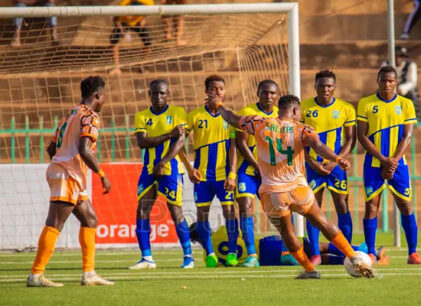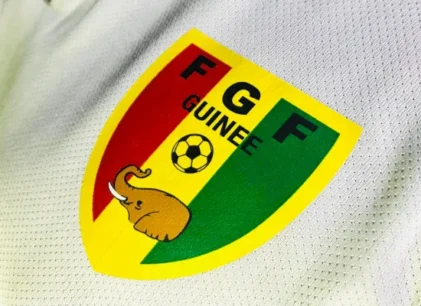South African wheelchair tennis player Kgothatso Montjane wants Africa to be better represented on the circuit. Having won a Grand Slam title and a Grand Slam final in 2023, she doesn’t like the fact that Africa is less valued than other continents.
Kgothatso Montjane has a message. The wheelchair tennis player, who became the first black South African to compete at Wimbledon (2018) wants more consideration from the International Tennis Federation (ITF).According to her, Africa isn’t represented enough on the circuit, and she wonders why. “I don’t know if it’s a question of money; is it because we’re poor? I don’t know. I’m looking for answers, I want to know why,” she asks BBC World Service.
This bitterness contrasts with the year 2023 for the 37-year-old. Indeed, she won the women’s doubles at Roland Garros with Japan’s Yui Kamiji. The two women went on to reach the Wimbledon final. The first South African to win the French Open since Tanya Harford and Rosalyn Fairbank won the women’s doubles in 1981, Kgothatso Montjane has a touch of regret. “People tell me you’re the first, so it’s a bittersweet moment for me (winning Roland-Garros). I want to celebrate, but at the same time I started late and I may be retiring soon. Who’s next from Africa to do it?”
Leading the way
Kgothatso Montjane continues, aware that she can inspire some of the younger generation to follow in her footsteps. “I really hope that some of my fellow Africans can get an opportunity, because I believe there’s talent out there. I feel like I’m a beacon of hope in a way, because I’m doing it in a wheelchair. And when you look around, nobody really does it, except the lady from Tunisia (Ons Jabeur). As a black person, I just hope people can see (what I’m doing) and invest more in black children, so we can see a lot more of us (doing it too).”
Kgothatso Montjane’s statements did not go unheeded in high places. Andrew Moss, head of the ITF World Tour, retorted. “There is talent on the continent that can rise to the top of the game; elite play can come from anywhere. And so the ITF has invested a lot of money both in development pathways, and also to help organize professional tournaments to help make that happen. We’ve seen a significant growth in tournaments across Africa. So that’s kind of the main building block. What’s then important is that there are opportunities for players after they’ve stopped being juniors, once they’ve reached 18, 19”. Whether this will be followed up remains to be seen.





